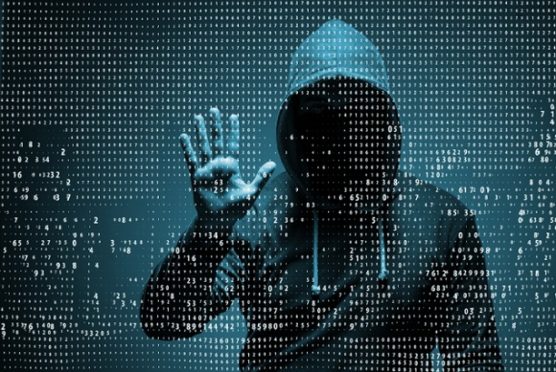The Los Angeles County Sheriff’s Department’s Fraud & Cyber Crimes Bureau, Emerging Cyber Trends Team has seen an uptick in online phishing scams, fake emails, bogus texts and in-person door-to-door ripoffs related to the COVID-19 emergency, according to an LASD bulletin to the community Wednesday.
The bulletin follows:
Criminals use fake emails or texts to get you to share valuable personal information, such as account numbers, Social Security numbers, or your login IDs and passwords.
DO NOT CLICK ON UNKNOWN LINKS, EITHER FROM YOUR CELL PHONE OR YOUR COMPUTER; INSTEAD, GO TO TRUSTED WEBSITES BY TYPING IN THE URL YOURSELF:
Trusted websites:
https://covid19.lacounty.gov/
https://www.coronavirus.gov/
In light of the recent increase in online scams and hacking attempts related to the COVID-19 pandemic, the Fraud and Cyber Crimes Bureau Emerging Cyber Trends Team is publishing this bulletin for your situational awareness.
OVERVIEW:
· Criminals use phishing emails to get access to your computer or network. These phishing emails often appear to be from familiar company names or pretend to be someone you know. If you click on a link, scammers/attackers can install ransomware or other programs that can lock you out of your data.
Protect your computer and electronic devices by:
* Keeping your software up to date and by using security software
* Your cell phone should be set to update software automatically
* Your accounts should have multi-factor authentication
* Your data should be regularly backed up, and the backup should be taken offline
COMMON TACTICS:
1. Fake charities: When a major health event like the Coronavirus happens, you might be looking for ways to help. Some online scams use names that sound a lot like the names of real charities. This is one reason it pays to do some research before giving. When you give, pay safely by credit card never by gift card or wire transfer.
The FBI has also released the below information related to cyber-enabled crimes related to the COVID-19 emergency.
2. Fake CDC Emails: Watch out for emails claiming to be from the Centers for Disease Control and Prevention or other organizations claiming to offer information on the virus. Do not click links or open attachments you do not recognize.
3. Phishing Emails: Look out for phishing emails asking you to verify your personal information in order to receive an economic stimulus check from the government. While talk of economic stimulus checks has been in the news cycle, government agencies are not sending unsolicited emails seeking your private information in order to send you money.
4. Counterfeit Treatments or Equipment: Be cautious of anyone selling products that claim to prevent, treat, diagnose, or cure COVID-19. Be alert to counterfeit products such as sanitizing products and Personal Protective Equipment (PPE), including N95 respirator masks, goggles, full face shields, protective gowns and gloves.
More information on unapproved or counterfeit PPE can be found at www.cdc.gov/niosh.
The following tips are the FBI’s recommendations for good cyber hygiene and security measures. By remembering these tips, you can protect yourself and help stop online scams and other criminal activity:
· Do not open attachments or click links within emails from senders you don’t recognize.
· Do not provide your username, password, date of birth, social security number, financial data, or other personal information in response to an email or robocall.
· Always verify the web address of legitimate websites and manually type them into your browser.
· Check for misspellings or wrong domains within a link (for example, an address that should end in a “.gov” ends in .com” instead).”

An example of a bogus email purporting to come from the World Health Organization. | Courtesy LASD.
HOME SAFETY
Here are some tips for home safety:
* Never, ever, open your door to anyone you do not recognize. There is NO such thing as a “COVID-19” or “Corona Virus” safety team going door to door. While it has not been reported in the Antelope Valley, rumors have circulated of unknown persons going door to door acting as safety teams demanding to inspect people’s homes. There is no such team and you should not open your home to anyone claiming to be such.
* There is no COVID-19 fundraiser. Do not donate money to anyone coming to your door or requesting funds online.
* If you are an essential worker and your kids are home alone, ensure you have a safety plan in place for them. Make sure they know who to call in case of an emergency.
* Don’t forget to lock your doors, windows and vehicles. Don’t leave valuables out in plain view. Keep up your #9pmRoutine and make sure all of your valuables are secured.
A message from the county Emergency Operations Center worded it perfectly by encouraging “everyone to not feel intimidated by a false sense of urgency to answer door-to-door solicitations.”
Please remind your elderly family members and friends to stay calm and not make any financial decisions based on an unknown party rushing them to do so.
For further information, see the FBI Public Service Announcement, Alert Number I-032020, March 20, 2020, at www.cdc.gov.
* * * * *
Always check with trusted sources such as those below for the latest accurate information about novel coronavirus COVID-19:
Johns Hopkins Coronavirus Resource Center
County of Los Angeles
Los Angeles County Department of Public Health
California Department of Public Health
Centers for Disease Control and Prevention (CDC)
World Health Organization
City of Santa Clarita
Like this:
Like Loading...
Related





 Tweet This
Tweet This Facebook
Facebook Digg This
Digg This Bookmark
Bookmark Stumble
Stumble RSS
RSS



























REAL NAMES ONLY: All posters must use their real individual or business name. This applies equally to Twitter account holders who use a nickname.
0 Comments
You can be the first one to leave a comment.